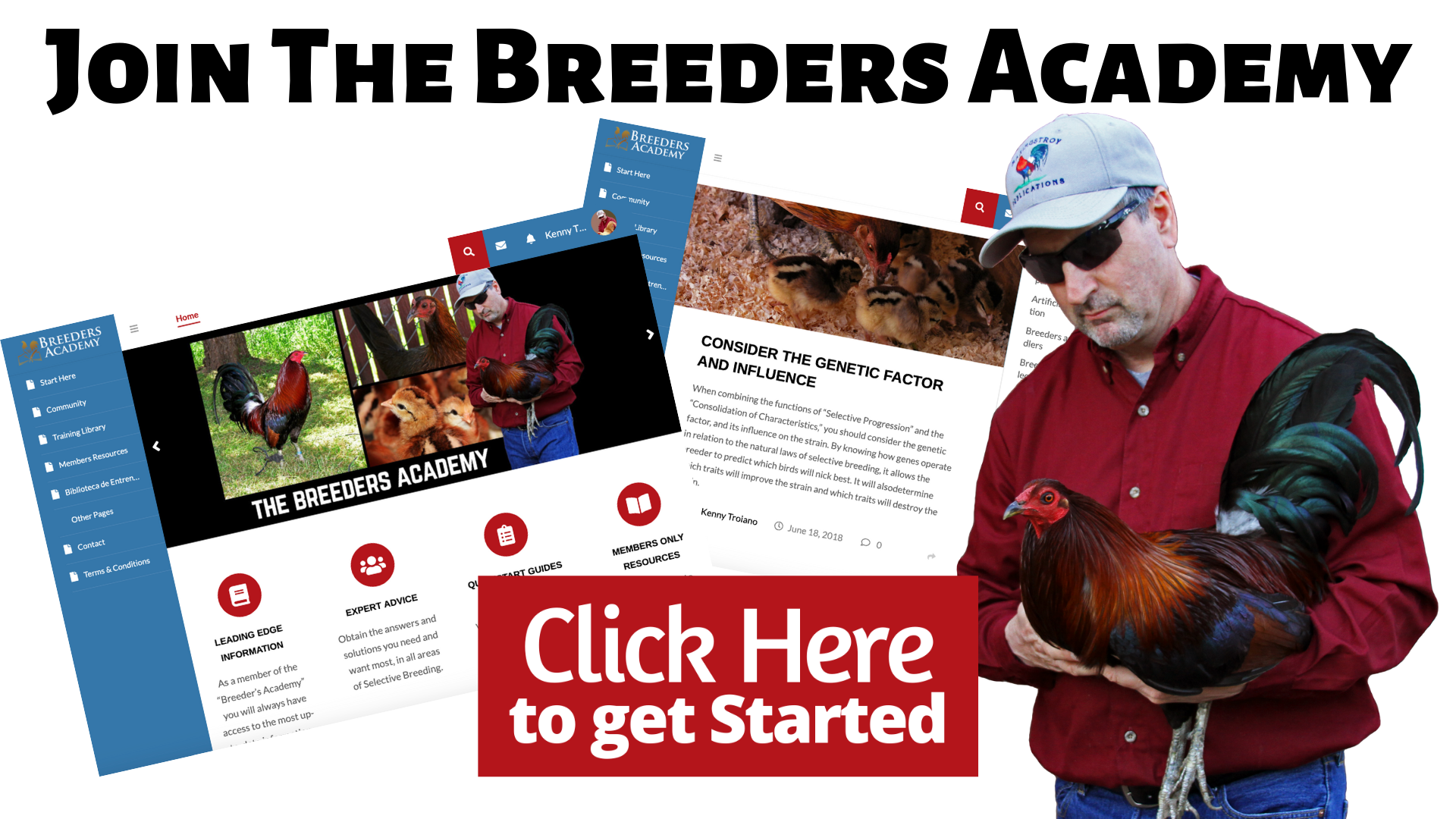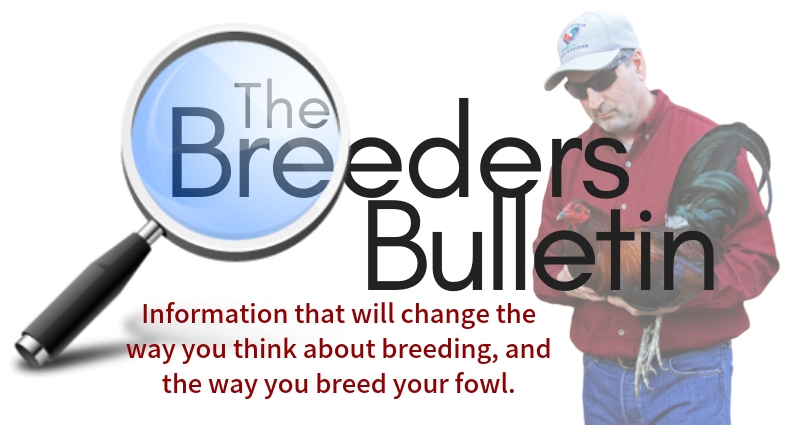Getting birds from other breeders can be quite dangerous. Their ideas of how or what gamefowl should look, act and perform like can be a lot different than yours. That’s if they have an idea of what they have at all.
Their birds may have inherited traits you know nothing about. You may end up with birds that inherited genes from many different sources and will produce results that are undesirable. Practices such as these only produce hybrids, so they won’t come uniform, they won’t breed true, and because of this, they won’t transmit their qualities with any level of certainty to their offspring, which means they cannot reproduce themselves.
To be successful, you must start with a good family or strain that has all the attributes that you desire. You do not want a family that has many good traits, but also has several traits that you despise. You will never find the perfect family, and all family’s will need to be fine-tuned, as it were, but it is important to find one that is excellent in most of its characteristics and traits. A family that has good form and function and is uniform in most of its characteristics and traits is always the best way to start.
If finding the right family does not work out, it may be best to create your own: To benefit from this concept, you must first understand that every chicken on your yard will inherit traits from their parents as well as their distant relatives. This makes it necessary to select nothing but the best when it comes to the fowl you plan to breed.
Make sure that both the cock and hen have very desirable characteristics and traits, and select the offspring that best represent what you are trying to achieve. Remember, the offspring will pass traits that are inherited from a long lineage of many different fowl, the most prevalent from their immediate relatives (mother and father). However, their grandparents and great-grandparents will also play a role as well.
They will inherit characters and traits from many of their ancestors in the following way:
- Half of their traits will come from their mother and father
- One quarter of their traits will come from the collectiveness of all their grandparents
- One eighth of their traits will come from the collectiveness of all their great-grandparents
- One sixteenth of their traits will come from the collectiveness of all their great-great-grandparents
- And one thirty-seconds of their traits will come from the collectiveness of all their great-great-great-grandparents.
This gradation or progression of inheritance will continue indefinitely. It is for this reason that not only should you use the best birds possible, but you should use birds from the same family that’s in your own yard. This way you will avoid the issue of hybridization, as well as, dominate and recessive traits.
The closer they are bred the more uniform they will become, and the less you will see as far as mutations, sports and throwbacks.
Your foundation fowl must have the ability to transmit their good qualities and traits to their offspring in a very positive way. This can only happen with purebred fowl or fowl that have been line-bred for many years with specific goals in mind.
There is no way of knowing which direction heredity in hybrid fowl is going to turn, and selection only counts when you are dealing with certainties of heredity, which cannot be controlled in hybrid chickens.
This often involves much of your time, effort and money, and a lot of patience, let’s not forget about that. Although there are challenges to this approach, it can be very rewarding in the end. For the gamefowl family (foundation fowl) that you end up creating will, as a result, be a creation that fully reflects your unique personal preferences regarding the way you think they should look, act and perform.
Making your own foundation fowl is also more definite and specific than trying to obtain fowl from other breeders, through friendship and money. You will be able to control, more completely, the initial development of the strain, rather than being forced into accepting the attributes that the breeder before you have created.
There may have been characteristics and traits that you would have liked if he didn’t breed it out of them through artificial selection. Once certain traits are eliminated, especially dominant traits, they are gone forever.
This brings up a good point. There are two rules in “selective breeding” to keep in mind at all times – “be careful of what you select for, and what you select against.” The reason for this is clear, you can never take advantage of traits that they do not already possess and, you can lose traits forever that they do possess due to selection, good or bad. Some traits, because of dominant and recessive genes, can cancel each other out, which means that if you are not careful they can be eliminated and lost forever.
Finally, most prospective breeders have little choice but to make their own foundation fowl, as very few of them will have access to a master breeder.

